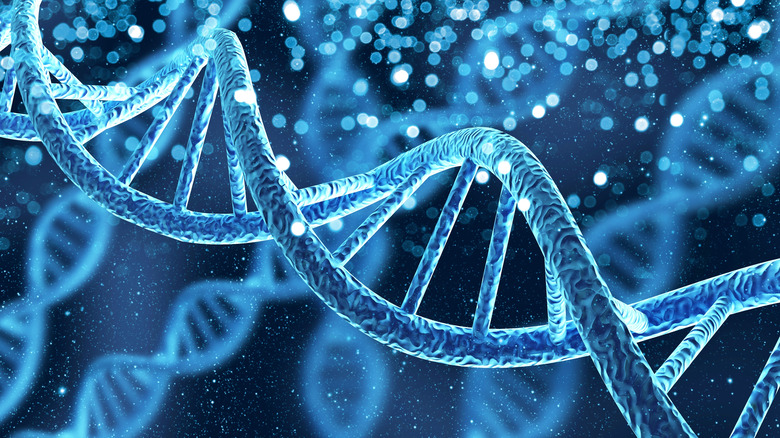How A Court's DNA Decision Could Impact Alleged Killer's Trial
Over the past several years, the use of DNA evidence has solved many cold cases, and has also helped to exonerate others who were wrongly convicted. DNA has become the gold standard for proving pretty much without a doubt whether someone was responsible for perpetrating a violent crime on another person, because in many cases, DNA is left behind at the crime scene.
One method of DNA collection that investigators use to circumvent the need for a warrant from the courts is by stealthily following suspects and picking up a cigarette butt or a soda can that the suspect used and discarded as a means to gather the DNA left on the item. While the search and seizure of a person's property is usually protected under the Fourth Amendment (via Cornell Law School), it's different when it comes to stuff we toss out in the garbage. This is called the abandonment doctrine, and that's what was used to charge John Arthur Getreu.
Getreu, 76, was convicted of raping and strangling a 15-year-old girl in Germany in 1963, according to the Newark Advocate. Decades later, in 2018 and 2019, he was charged with two 1970s California murders in which two 21-year-old women were found strangled to death. While investigating cold cases, detectives pegged Getreu as a target by running DNA from the 1970s killings through a commercial genetic DNA database, according to the Palo Alto Weekly.
Investigators then followed Getreu and pulled a coffee cup out of the trash that he threw away while at a pharmacy, per Palo Alto Weekly. The DNA matched.
Is the stuff we throw away still protected under the Fourth Amendment?
Even though the DNA evidence points to Getreu's being the one who killed Leslie Mari Perlove in 1973 and Janet Ann Taylor in 1974, according to the Los Angeles Times, Getreu's attorney, John Halley, is challenging the legality of the way investigators obtained the DNA without a warrant. According to the Palo Alto Weekly, he's asking California's high courts to look at the abandonment doctrine and how it relates to the Fourth Amendment.
The Fourth Amendment protects against "unreasonable searches" and "seizures" and prohibits the search of their persons, houses, papers, and effects" without a warrant. According to the Columbus Bar Association, the courts have not considered someone's trash as protected under the Fourth Amendment, but also, keep in mind that the Fourth Amendment was written a long time ago, well before tons of personal information could be pulled from a discarded coffee cup.
The question is, because so much personal and private information can now be pulled from DNA, and no warrant is needed to take DNA from any person's garbage, does it violate a person's rights for investigators to obtain all that information without a warrant?
If the court decides it is a violation of the Fourth Amendment, this specific evidence in Getreu's case would be thrown out, and it could have repercussions on the outcome of the case. According to the Palo Alto Weekly, Halley's motion has already been rejected by the appellate court and San Mateo County Superior Court. Now, the state Supreme Court will decide whether it will consider Halley's argument.

